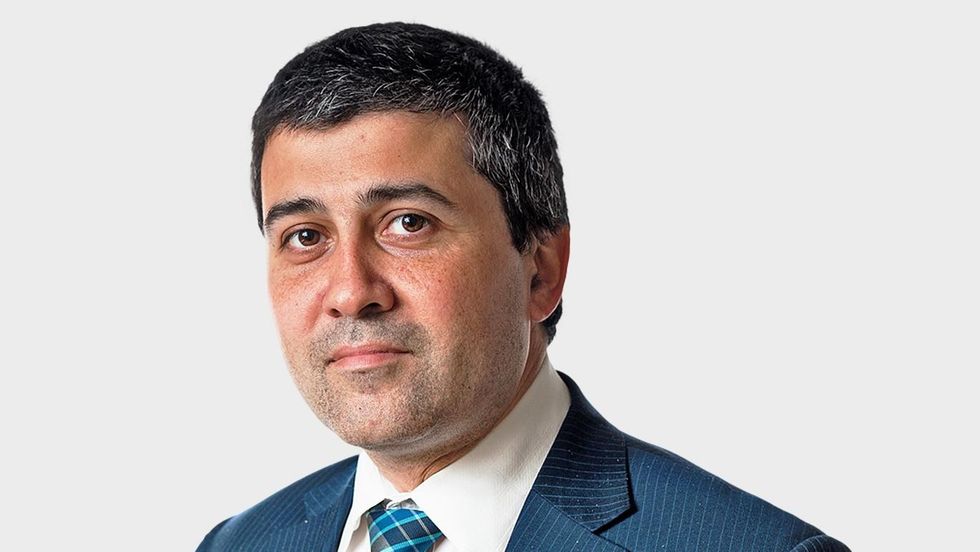Building bridges across divisions in society will be key in 2022
EVERY new year is a time for optimism, but 2022 begins with that natural instinct checked by recent experience.
Few expected this Covid-19 pandemic to go into a third year. In its first year, we pulled together rather than apart. We clapped together on our doorsteps and got ready to gradually return to normality before a pre-Christmas surge sent us back to square one.
But 2021 was so much a case of deja vu all over again that the second year of the Covid pandemic already now blurs into the first in our memories. Another spring of optimism, with the hope of the vaccination programme, faded into frustration. Twice bitten, thrice shy, perhaps?
And 2022 looks like being a year when we have to work out how to live with Covid, perhaps in endemic form for much longer.
The politics of 2022 may become yet more fractious. Boris Johnson’s government had the benefit of the doubt in grappling with an unprecedented crisis.
When there were gains as well as pain from the pandemic, they arose from a sense of solidarity from shared sacrifice. Hence the public anger if those in charge don’t stick to the rules themselves.

December’s political dramas leave Westminster wondering aloud whether Johnson, foreign secretary Liz Truss or chancellor Rishi Sunak might be prime minister by the end of the year.
May’s local elections may do much to determine whether the prime minister can restabilise his turbulent party, while Michael Gove’s imminent Levelling Up white paper takes on ever more totemic importance as the government’s main opportunity to generate a substantive policy legacy during this parliament.
Keir Starmer’s opening New Year speech noted that the Labour opposition have been given a new chance to be heard by the government’s difficulties. The test of the Labour leader and his recently reshuffled front-bench team is how far they can now make the political weather as a credible alternative government with their own agenda for change.
This will be a year of identity, in which we might think and talk about who we are than at any time since the 2012 Jubilee, held in a distant era where nobody had heard the words Brexit or Covid.
The 2022 platinum jubilee will be mostly a moment to look back through the seven decades of the Queen’s service, as the longest-serving monarch in British history, a symbol of continuity in a society of rapid change.
Everybody will be aware that the monarchy will, one day, need to adapt to a new future, but those important national questions may mostly be left, quietly, for another day.
It will be a year of sporting overload too, in an era when we have seen in football and cricket how much sport shapes our national conversations about identity, race and belonging.
The Commonwealth Games give Birmingham its opportunity in the national and global spotlight.
The women’s European football championships, hosted in England, will be the biggest effort yet to boost the profile and status of women’s sport, before the men’s team travel to Qatar for the curiously unfamiliar phenomenon of a winter World Cup in the runup to Christmas.
The centenary of the BBC and the Unboxed Festival – having ditched the pejorative baggage of a so-called ‘Festival of Brexit’ – will seek to engage the general public in thinking about who we think we are, and what that means for our past, present and future.
The most detailed portrait of the society that Britain is becoming will come with the 2021 census results, due to be published by late spring. This will offer a once-in-a-decade snapshot of our changing society. Stories of demographic change can be abused for incendiary purposes.
Conspiracy theories like the Great Replacement Theory seek to stoke fears and extremism, creating challenges for national and local policymakers, and the media, to navigate.
Yet the census facts also illuminate perhaps the biggest challenge for the next decade: how to develop a compelling public vision about a changing Britain in ways that can reach across social divides – and broaden confidence about how we manage change fairly for everyone.
So it will illustrate why every major institution and sector will need to develop more confidence in how we talk about Britain’s growing diversity – and the action needed to unlock its full potential for the shared public good. This must be an era to call the bridgers to action.
The pandemic has been a long period of disconnection, but one in which the appetite and need for social connection has grown stronger. It will take time to repair the disruption to education, health and the economy.
As we will emerge into this uncertain future, work to build bridges across the divides in society will be more important than ever.















 David Beckham wearing a David Austin Roses "King's Rose" speaks with King Charles III during a visit to the RHS Chelsea Flower Show at Royal Hospital Chelsea on May 20, 2025Getty Images
David Beckham wearing a David Austin Roses "King's Rose" speaks with King Charles III during a visit to the RHS Chelsea Flower Show at Royal Hospital Chelsea on May 20, 2025Getty Images

 Kurukshetra battlefield illustration
Kurukshetra battlefield illustration
 Chanakya
Chanakya  Shimla Agreement
Shimla Agreement Kargil War 1999
Kargil War 1999
Finding solutions to old problems in the new year